As part of our ongoing growth & expansion, the team at WES have started to move into our purpose designed facility in Basingstoke this week.
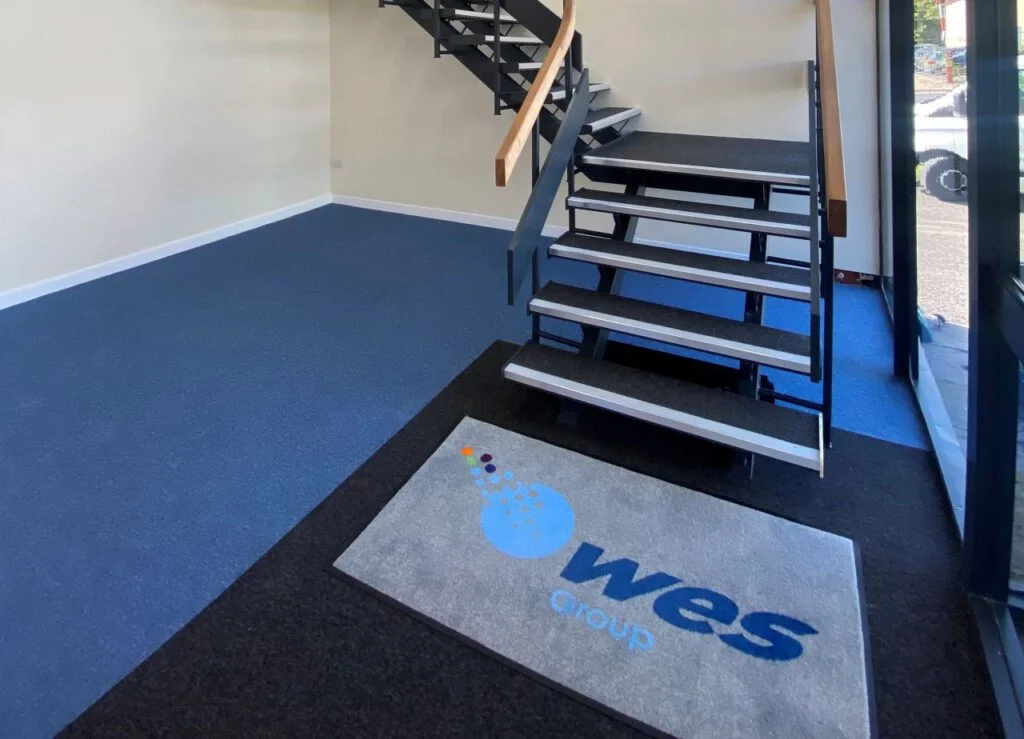
This phase of our move sees all office & administrative functions now operating from the new facility, known as Unit 1 – which will become our primary operational & HQ site.
The next phase of the move, which will take place in November, will see our manufacturing operations move into the new purpose designed facility.
To accommodate growth & increased workload, we have retained our existing site, now known as Unit 2 – and as both units are next door to each other, we now have one combined site!
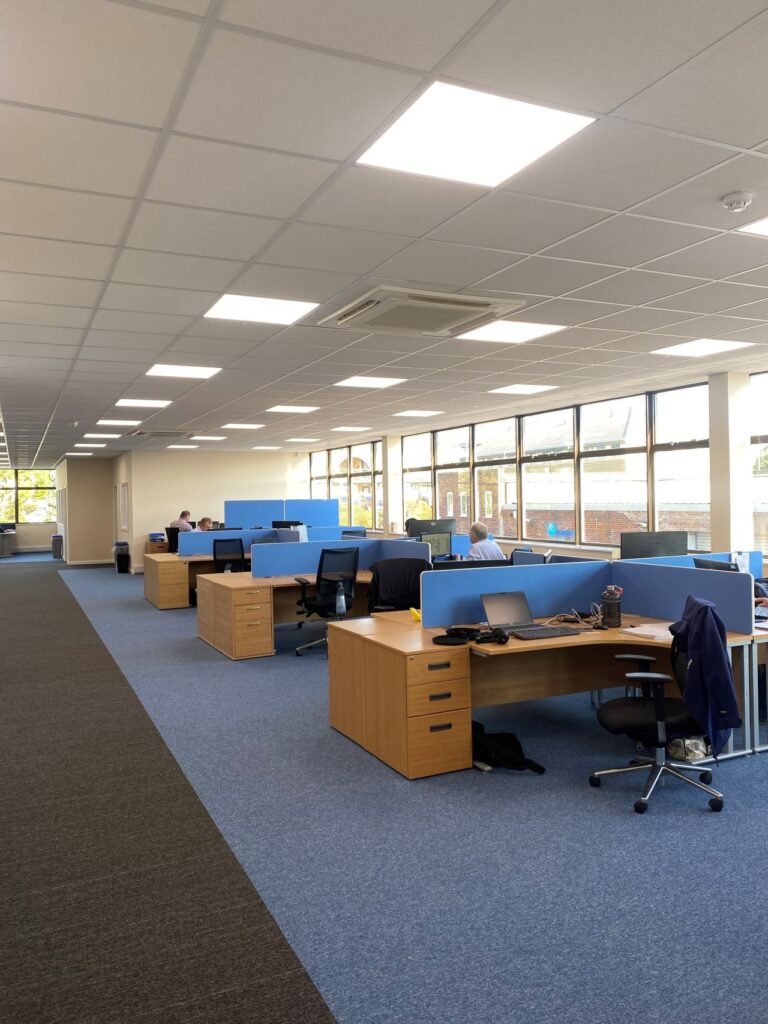
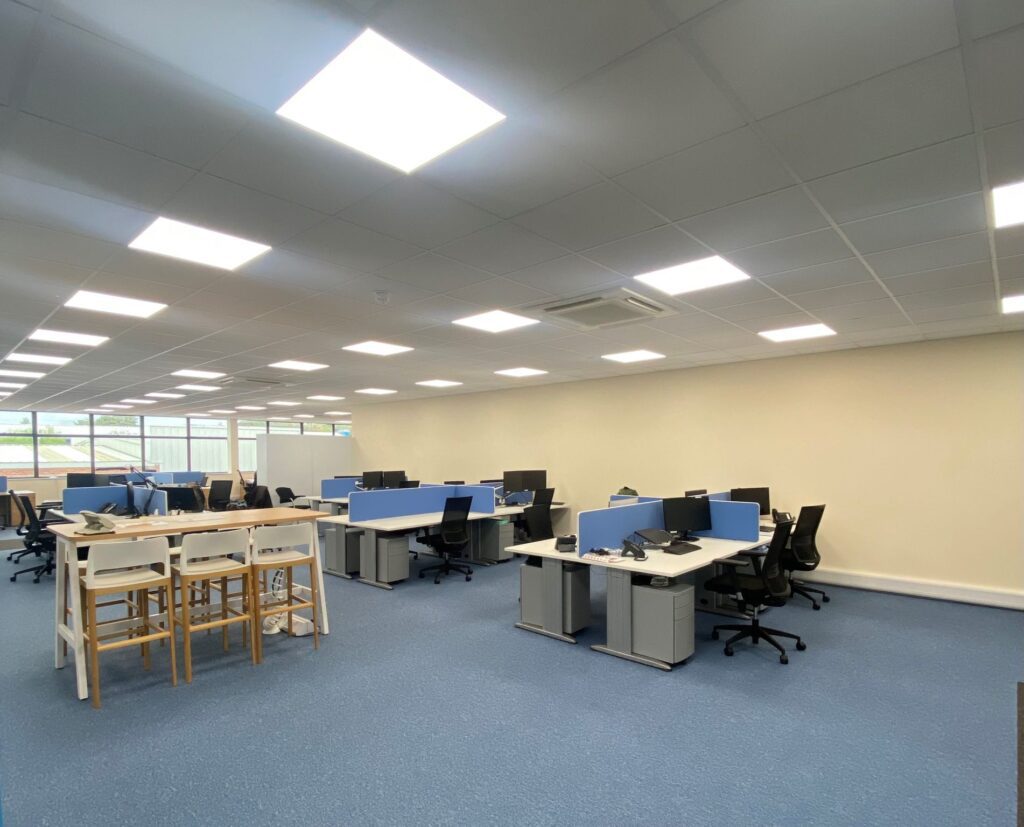
This is an exciting time for our business, where the office move will support WES’ long-term goals.
We want to say a massive thank you to all of our staff and contractors who helped make the phase of the move go without a hitch!
James Fleury, a mechanical engineering undergraduate, who will be working with WES over the next 13 months as a part of a placement year for his university course. James is the second placement student to have joined us, and we are excited to see James progress throughout his time with us. At WES we believe placement years are a great opportunity for students to develop skills and gain valuable experience before graduating and entering the working world.
What course are you studying?
“I am studying MEng Mechanical Engineering at The University of Portsmouth.”
How have you been finding the first few weeks at WES?
“Overall, my first weeks have been very enjoyable mainly due to the positive and welcoming attitude the team has. The opportunity to work in both the office and the workshop has been very enjoyable and has enabled me to pick up a lot of knowledge in a very short amount of time.”
Why did you choose to do a placement year?
“A year in industry was essential for me as I have always been a very hands-on learner and was excited to get experience into the professional world to help kickstart my career after graduation.”
How will the placement year impact your final year of university?
“Returning to university after a year with WES will allow me to return with a wealth of extra knowledge and experience while helping me pinpoint the direction I want to head in after I graduate.”
WES were very pleased to have hosted SOCOTEC over the last 3 days for our ISO 9001, ISO 14001, ISO 45001 and Safety Schemes in Procurement (SSIP) audits.
“We are especially delighted with the positive feedback we received for our culture of continuous improvement. It is something we strive to build at all levels of the organisation, so to have our staff recognised for it is a source of pride.” Matt Haines, Business Assurance Manager
Last week, workshop and site staff attended a PASMA training course with UTN Training in Winchester.
PASMA training is designed to ensure safe assembly, movement, and disassembly of mobile access towers used when working at height. PASMA training also covers people who wish to inspect mobile access towers for safety purposes.
We recognise the importance of staff H&S training and in recent weeks our colleagues have undertaken Abrasive Wheels, Water Hygiene, Spill Management, Manual Handling and First Aid training courses.
At WES, we have developed a training app which identifies gaps in training for every role/person and it ensures that no training expires without re-training being booked.
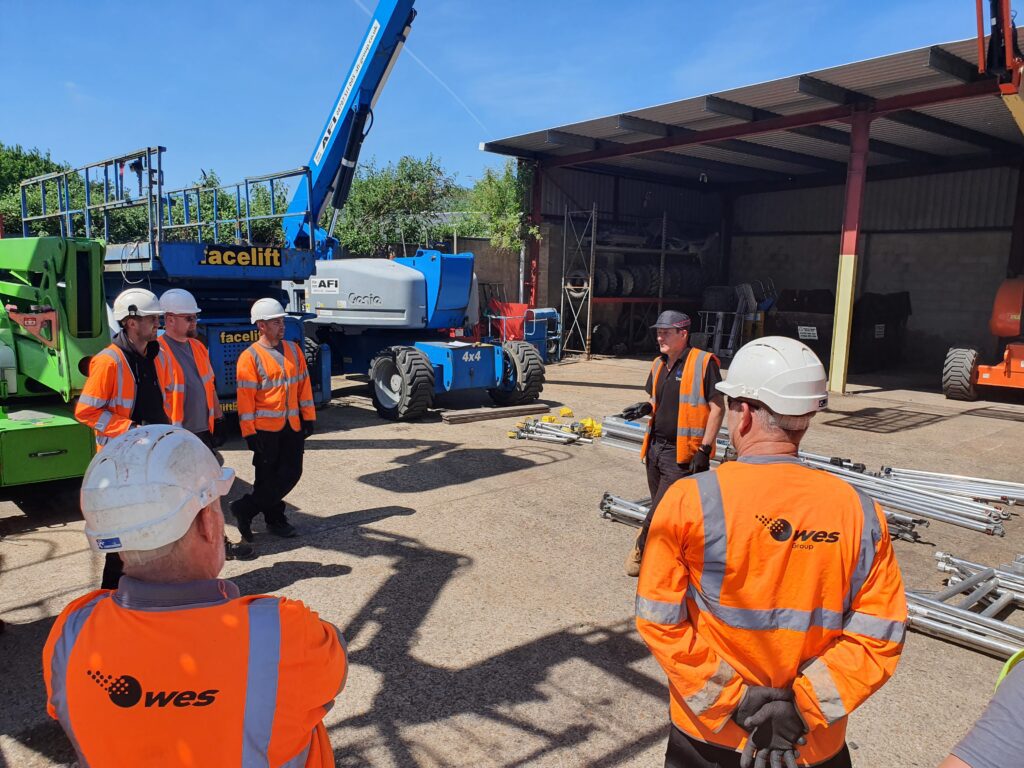
Sam joined us in June 2021 as our ‘Year in Industry/Placement’ student, working in our Capital Projects Business Stream. His attitude, work ethic and general ability has been exemplary. Sam is currently doing a master’s degree in chemical engineering at Birmingham University and will return for his final year in the autumn. Sam’s progress has been outstanding, so we have awarded him a sponsorship (for his final year at university) and have offered him a position as Junior Project Manager for when he graduates next year.
“Sam has become an invaluable team member during his time here, turning his hand to all aspects of the project cycle, bringing a real boost to the team. It was an easy decision to offer a package for his final year of university and a position within the team on completion” (Patrick Fisher, Projects Director).
Why Investing in Young Talent is important to our business
Ensuring our business invests money, time and training into young, upcoming talent is essential for business growth and success. We believe injecting our workforce with younger employees offers a variety of benefits. Young talent can offer fresh ideas, spirit, and motivation. We can plan for our business future by contributing to the development of new talent – they could be the future leaders in our industry.
Investing in young talent can ensure that our business commits to the potential of having long-standing staff in the future. Young talent often brings diverse qualities to the table that experienced employees may not be able to access.
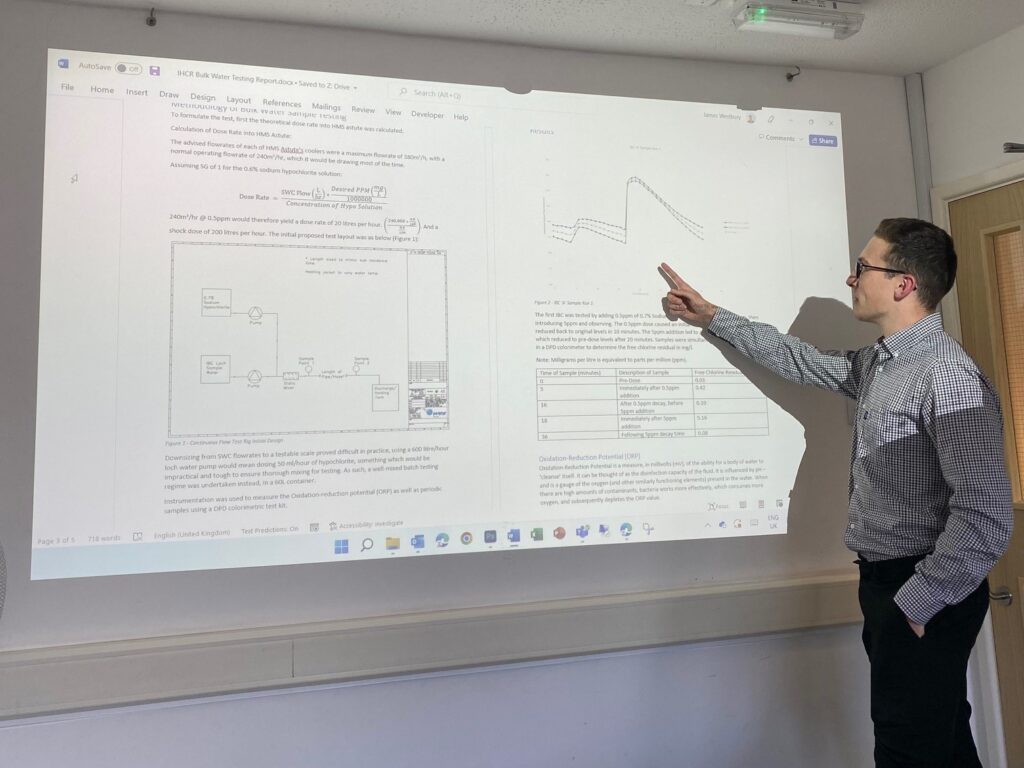
“Working at WES has been thoroughly enjoyable. Joining an SME has been invaluable in broadening my experiences throughout my placement year, enabling me to jump between commissioning, project management, mechanical drawing, and sales in any given work week! Exposure to business development meetings and looking at various project’s earned value/cash flow has been particularly engaging, and something not-yet covered in my engineering degree.
A highlight of my year was the recent despatch and successful commissioning of WES’ latest chlorination dosing system, a project I have managed all the way from the proposal & tender stage, which is now operational on a very high profile site. Watching it leave the yard was a fantastic milestone to have achieved towards the end of my placement, hopefully the first of many dosing systems I will deliver with WES upon commencement of my graduate role.
There’s a lot to look forward to in 2023; our new office building will be complete, the company will have had a further year integrating with the wider RSE Group, and who knows, I might win the WES fantasy football league again too.” (Sam Anderson, Placement Engineer)
Kevin Wheeler, Managing Director, commented:
“Introducing an undergraduate student to our projects team for a placement year was something WES had not favoured in the past. Fears over the time needed to manage and train an “inexperienced” young person and for no guaranteed return during or after the placement year, meant we had concentrated on the more traditional apprentice route to introduce young talent.
However, Sam has completely dispelled those fears, his focus, enthusiasm, engagement and, most impressively his underlying leadership abilities in managing a particular project for a very prestigious client have been a joy to behold.
I hope too that WES have given Sam the motivation to finish his masters degree in the knowledge that he will make a very valued contribution to the business upon his return.
I look forward to having more “young Sams” in the business”
We are currently looking for our next Year in Industry/Placement student for 2022/2023.
Incidences of pollution will have a significant impact on funding throughout AMP7. It’s, therefore, vital that businesses involved in water and wastewater treatment focus on preventing chemical leakages. Hiring or purchasing bunds, structures that underly and wall-off areas containing hazardous chemicals or liquids, thereby providing containment in the event of leaks, represents a small investment. However, it drastically reduces the risks associated with storing chemicals.
Businesses have an array of choices to make when it comes to selecting a bund suitable for their needs. They can opt for a permanent bund, built directly on the treatment site or manufactured off-site, transported and then installed. Temporary or portable bunds, used for smaller volumes, meanwhile, are made from lighter materials. They include intermediate bulk containers (IBC) bunds, which when constructed for movement by forklift trucks are often referred to as pallet bunds.
The most suitable material for the bund must be considered and selected based on several factors, including the size of the storage containers, the nature of the chemical stored, and the bund’s position and environment. The decision is also strongly affected by whether it will be built on-site or manufactured off-site.
The most traditional permanent bunds are built with concrete, brick or block walls, standing on concrete floors. These materials, and any mortar used in the masonry walls, must be watertight and capable of resisting the chemicals.
In recent years, as off-site bund manufacture has grown in popularity, different materials and construction methods have become more common. One alternative for permanent bunds is prefabricated steel. However, this is susceptible to both atmospheric corrosion and attack by the stored chemical, so a special resistant coating must be applied to it.
Together with the growth in off-site and modular manufacture of chemical dosing systems, there has been a considerable evolution in bund construction methodology and design in recent years. For packaged systems up to around 30,000 litres, fabricated polyethylene (PE) or polypropylene (PP) bunds with a rectangular footprint are now commonplace. However, certain design issues must be addressed if they are to be considered viable alternatives to civil-engineered bunds constructed on-site.
When it comes to choosing the capacity of your bund, the UK WIMES: Water Industry Mechanical and Electrical Specifications stipulate that it should be 110% of the total storage capacity of the largest tank or 25% of the total capacity of all tanks, whichever is the greater. However, requirements for outdoor bunds may differ a little between individual water companies. Thames Water, for example, insists on sizing at 110%, while Yorkshire Water extends this to 130% in its own specifications.
Finally, bunds must be protected from the elements and rigorously maintained if they are to function correctly in the long term.
Taking all of this into account, the safest approach is often to buy or hire complete chemical storage and dosing equipment set-ups from WES. They come with the most appropriate bunds, as well as all necessary filling and safety systems, and all components are pre-assembled and pre-tested. For easy installation and integration with the plant’s existing operation, each delivery is also accompanied by the right pipework, connectors and control features.
Hugh Rose joined WES in April 2021 as an Electrical Design Engineer. Hugh works within the Capital Projects department at WES. We asked Hugh a few questions to find out more about him!
Can you tell us about your role?
The role is to aid the senior electrical engineer both within the confines of the factory and on site. This also includes working with the commissioning engineers and technical staff to ensure any details on the drawings are kept up to date. It also involves ensuring that any designs for site distribution both inside and outside the unit are compliant to the latest wiring and water authority regulations, following with the design specification and cable calculations for final documentation.
What has it been like working for WES so far?
Coming from outside the business it has been a bit of an eye opener, the workload is building as I become more acquainted with procedures and compliance issues. The company has a very pleasant working atmosphere with easy interaction between staff and departments.
Tell us about your career path?
My career has been varied to say the least, starting as a Weapons guidance engineering apprentice in the Royal Navy, then training and qualifying as an approved electrician, moving into Film and TV production, running my own business for 20 years and then finally into electrical management and design culminating in a move to WES early this year, managing IEng. accreditation and membership of the IET along the way.
What are your interests outside of work?
Outside work I collect and restore analogue sound equipment and have a small music studio at home left over from my TV days. I also enjoy travelling and spending time with my grandchildren.
Lawrence Wretham has recently joined WES as a Proposals Engineer. Lawrence will be assisting Les Bunce in the Hire division. We asked Lawrence a few questions to find out more about him!
Can you talk to us about your role?
My role is to assist customers with their requirements for hired dosing systems. I will visit site, measure up and try to find the best solution for their dosing needs. I will send a comprehensive, itemised proposal and will recommend a full solution built around the customer’s choice of chemical.
What has it been like working for WES so far?
Genuinely interesting. I’m really impressed that we have such a wealth of knowledge here and so many time-served experienced people. Our ability to manufacture is also remarkable as it combines several disciplines and processes so well. I’m constantly learning.
Tell us about your career path?
I come from a construction industry background and have been in equipment hire for a long time. I was a branch manager for a major equipment hire company for several years. When I was at school, my first Saturday job was with compressors and air tools. I did a brief stint as an estate agent in the early 1990’s, but I’m OK now.
What do you like to do in your spare time?
I have quite a few hobbies! I am a keen cyclist and am always restoring at least one old bike.
I ride a unicycle (I used to commute on it) I am learning to weld. I fix old computers and laptops. I love to visit historic places and have been to almost all the English Heritage castles in Southern England. I listen to lots of music from classical to rock, metal, rap and world music and love live music events.
Sam Anderson, an engineering undergraduate, will be working with WES over the next 13 months as a part of a placement year for his university course. Placement years are a great option for students to develop skills and gain valuable experience before graduating and entering the working world.
What course are you studying?
M.Eng Chemical Engineering at The University of Birmingham
How have you been finding the first few weeks at WES?
The first few weeks have been excellent, it’s been great getting hands on with setting up and commissioning pumping systems; and seeing the design process I have studied being used in industry. It’s been a steep learning curve – but I can’t wait to continue integrating with WES and ultimately be managing projects of my own!
Why did you choose to do a placement year?
I always wanted to include a year in industry as part of my degree, the exposure to the working world in advance of obtaining my degree will be invaluable in applying for grad jobs. Also, I am looking forward to developing skills that can’t be obtained in lecture theatres and tutorials; building working relationships with qualified engineers and managers and absorbing the advice they have to offer.
From two weeks working with WES, I am already seeing the benefits of working for a small, rapidly growing engineering firm. The closeness of the business allows me to gain experience in multiple departments, from commissioning and building dosing rigs in the workshop and on site, to managing projects and designing systems in the CAPEX business office.
How will the placement year impact your final year of university?
By spending a year with WES, connecting the dots between engineering concepts and engineering practice, I expect I will be able to understand final year content quicker and with more depth. For example, I am already better at visualising a built system from a paper P&ID, something which took longer during my third-year design project.
